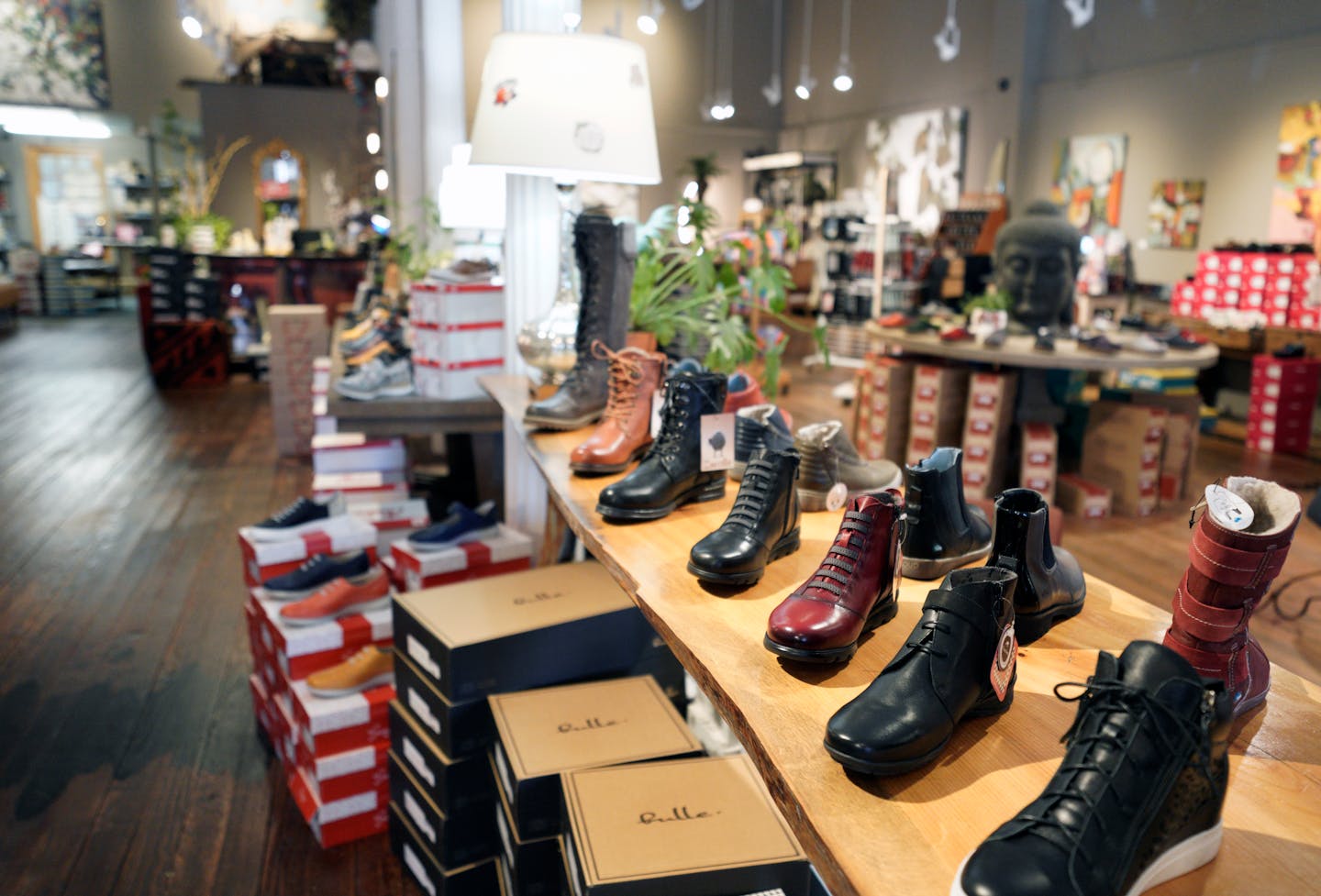ZUMBROTA, Minn. — It was still early in the holiday shopping season at Wild Ginger Boutique on this southern Minnesota town's Main Street, and the owner was having trouble keeping shelves and racks stocked with the women's clothing, gifts and accessories she's been selling for 14 years.
"I'm worried because I want to be able to have a good display for people when they come in," Roxanne Bartsh, Wild Ginger's owner, said at the end of last month. "I've never had to do so many re-orders before November 1st. Ultimately it's a good sign."
Along the downtown strip in this city of just more than 3,600 people, an hour from the Twin Cities and 20 minutes from Rochester, a close-knit cluster of small-business owners are defying the closings and corporatization that have afflicted rural retailers in recent decades.
COVID-19 dealt yet another huge challenge. After a tough 2020, Zumbrota's store owners, like so many in the state and country, are yearning for a surge of holiday spending to finish up 2021.
"Last year was brutal," said Kris Ferguson, owner of the consignment clothing store Phenomenal Woman, next door to Wild Ginger. "This year has been pretty good for us. I say that guardedly and cautiously."
Zumbrota's downtown strip is home to several other boutique clothing shops, a shoe store, a home furnishings and specialty-foods store, a hardware and furniture store, a flower shop as well as traditional businesses such as a grocery store and car dealerships. Recently, the Greensted — a microgreen growing operation with a small, locally sourced food market — opened on the edge of town.
Shoppers come from the town and area, several owners said, but also from Rochester, the Twin Cities and farther afield.
"It's a shopping destination," said Paul Bennett, who opened a Zumbrota location of his store, Dwell Local, after several years in Rochester (he closed his original store early in the pandemic). Bennett was hustling at the end of October to get his Christmas displays together, laughing at how customers were asking for it by mid-October.
Many of Minnesota's small cities and towns lack such a diverse retail array, and most would love to replicate it. In 2019, the chamber of commerce in nearby Cannon Falls invited a group of Zumbrota retail owners up for a panel discussion. "They shared how they network with each other, how they promote each other, how they work together," said Kyle Paulson, director of the Cannon Falls Chamber.
Some members asked why she invited retailers, who are arguably competitors, to talk about their successes, Paulson said.
"I said, 'It's because I hope when you hear it, you'll learn to do what they're doing,'" she said.

Brian Peterson, Star Tribune
Connie Hawley, who owns the shoe store Luya, said Zumbrota's Business Alliance offered strategic and moral support.
The Zumbrota owners formed their own Independent Business Alliance, meeting regularly to share survival tips and strategies, brainstorm promotions and offer moral support. Connie Hawley, who opened her shoe store Luya seven years ago, owns another store in Excelsior and previously owned shops in Edina and Stillwater. She said Zumbrota is the most supportive business community she's ever been a part of.
"This was a huge thing once the pandemic hit, too," Hawley said. "We shared information about grants, assistance programs. It was, 'Hey, did you hear about this one? You should apply.'"
Like most small-town retailers, few of Zumbrota's shops offer online sales. Most said they wouldn't have survived the early months of the pandemic without government help. And sales this year are markedly higher than 2019, Hawley said.
Once vaccinations became widespread, Bartsh said, loyal customers headed back to the Zumbrota shops in force. Despite the pains of the pandemic, she thinks it might be resetting the relationship between shoppers and stores. "Big box stores are nothing but sales, sales, sales, and malls are depressing," Bartsh said.
Problems now afflicting some retail sectors also don't loom large for small-town retailers like Bartsh, who said she hasn't lost any sleep worrying about supply chain disruptions affecting holiday offerings.
"Most of what we sell is made in the U.S.," she said.


